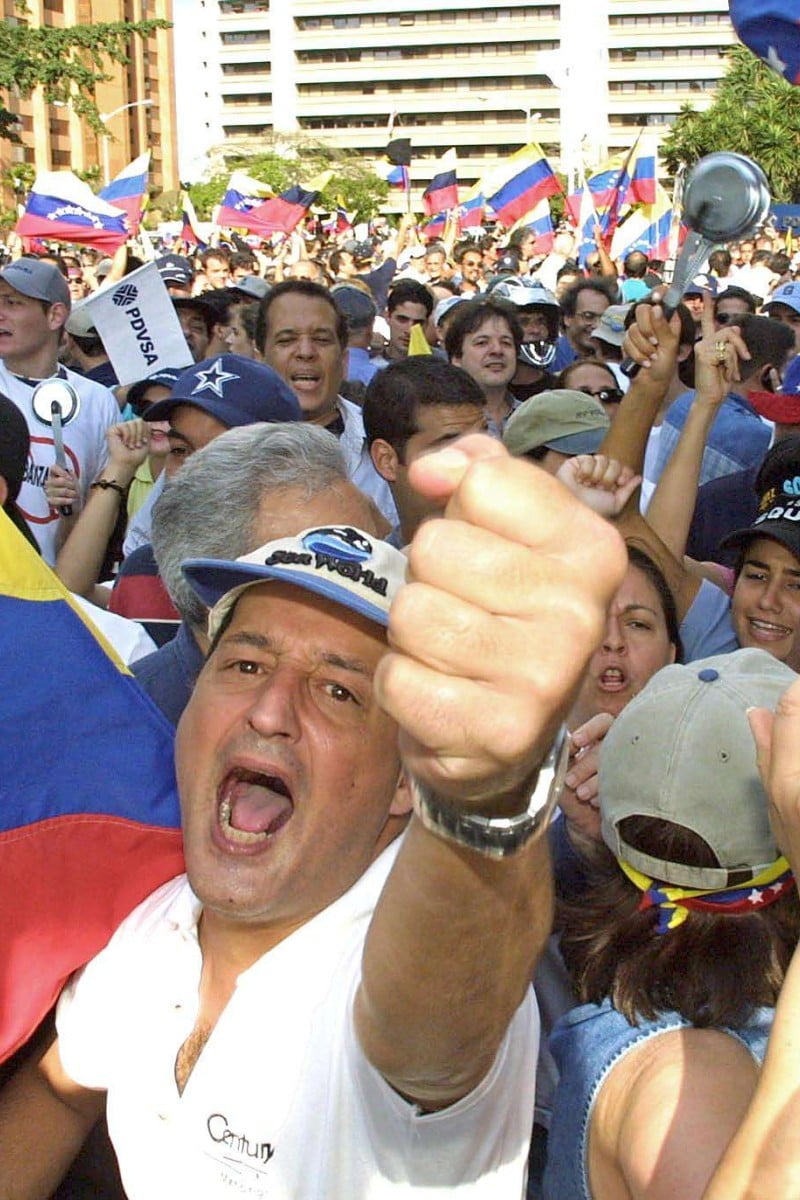
 Venezuelans show their disapproval of the government policies, first introduced by the late former-leader Hugo Chavez.
Venezuelans show their disapproval of the government policies, first introduced by the late former-leader Hugo Chavez.The precipitous fall in global oil prices has wreaked havoc on many oil-producing countries. The crash has put immense fiscal strain on the Gulf states and countries like Russia, which rely heavily on oil exports as a source of foreign currency. Yet, arguably, no economy has been hurt quite as badly as Venezuela’s.
Venezuela has the world’s largest proven oil reserves; the commodity comprises 95 per cent of the country’s export revenue and 50 per cent of its gross domestic product. But whereas Middle Eastern nations with sizeable oil reserves converted the valued resource into riches, Venezuela never saw such prosperity.
Years of economic mismanagement meant that the country’s economy was teetering at the best of times. Inflation ran into double digits even when oil prices were as high as US$100 per barrel.
Now, with oil prices more than 60 per cent off their peak, Venezuela’s economy is in dire straits. Inflation, which hit 100 per cent in 2015, is expected to reach 700 per cent this year, and possibly 2,000 per cent by 2017.
Venezuelans regularly face shortages of basic necessities as well as unreliable utility supplies. Unemployment and poverty rates are rising. With oil revenues plummeting, the government is struggling to meet its obligations.
How does a country so rich in natural resources find itself in such a predicament? A lack of diversification beyond the oil industry is part of the problem. Beyond that, former leader Hugo Chavez and his successor Nicolas Maduro are guilty of implementing deeply flawed economic policies.
During his time in office, Chavez enacted a series of populist measures commonly known as Chavismo, including price controls, wide-ranging subsidies, and general opposition to the market economy, which had a severe detrimental effect.
Chavez imposed a series of price controls to protect consumers from rising prices. These included, for example, the maximum price a loaf of bread or a bar of soap could be sold for. What Chavez failed to appreciate is that suppliers would be unwilling to put goods on shelves if they did not receive a reasonable profit. The result was a shortage of almost everything from tea bags to toilet paper.
The cruel irony of price controls is that they cause the greatest harm to the very people they seek to help. It does not matter how cheap cooking oil is if no one can buy it. Price controls undermine the core benefit of a free market: that any two parties have the freedom to trade at a mutually agreeable price.
Chavez, and now Maduro, have introduced ridiculously wasteful subsidies. Petrol subsidies have been scaled back, but a litre of fuel still costs less than a litre of water. Part of the reason the government failed to build up sizeable foreign reserves is because a large portion of the oil revenue simply went to subsidising oil consumption in the country.
The government also insists on maintaining an official exchange rate which massively overvalues the Venezuelan bolivar. The government’s exchange rate is 10 bolivars to a US dollar. On the black market, however, the bolivar trades at more than 1,000 to the US dollar. As a result, few are willing to trade their US dollars for Venezuelan bolivars. Many, fearing the currency will decline further, are doing the opposite, so the country faces a grave shortage of foreign exchange.
Putting Venezuela back on track will require liberal, free-market policies, and the scrapping of wasteful subsidies and price controls. Also, the country’s currency must be “floated”, and allowed to trade at the market rate.
With the introduction of these measures, inflation will rise but the shortage of essential goods will quickly disappear, and a competitive market will soon push prices down. Although the bolivar will, at first, depreciate significantly, this will attract US dollars into the economy and ultimately strengthen the currency. Less tangibly, Venezuela will experience renewed international and domestic confidence, laying the groundwork for future development.
The era of Chavez has passed. So too must the era of Chavismo.

